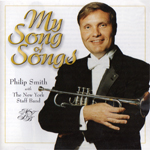
Stravinsky "LHistoire"
New York Times - Stravinsky "LHistoire"
New York Times
May 14, 2005
Going Big on Bach, Small on Stravinsky
By BERNARD HOLLAND
Intermission split the personality of Thursday nights New York Philharmonic concert in two. Before came wide-bodied Bach: the Third and Fifth "Brandenburg" Concertos. After came Stravinskys "Histoire du Soldat," one of the small, delicate joys of 20th-century music.
With Pinchas Zukerman sitting in the first-desk violin chair for the Bach and the Philharmonics virtuoso string players pared to a chamber orchestra of 20 at most, period instruments and Baroque practices were more or less out the window. This was big, gleaming Bach on instruments built to fill spaces like Avery Fisher Hall with sound. Lionel Party and Robert Langevin played the elaborate harpsichord and flute solos, and Bach survived nicely, as he always seems to do regardless of how posterity plays with his originals.
From the performers point of view, the program was one of those late-season opportunities for players within the orchestra to step forward and be acknowledged. The Stravinsky is an instrumental septet of mostly winds and brass with narration and, in this case, a little visual theater as well. Stravinsky conceived "LHistoire" as a kind of traveling carnival show, though it never went on the road.
With a soldier, a violin, a book, a princess and a bad deal made with the devil as ingredients, the story has a kind of rustic simplicity. In response, Douglas Fitchs projected images - part slide show, part animation and part puppetry - pursue a calculated clumsiness that never fully avoids cuteness but doesnt work that badly.
The music, in six scenes and two acts, can be said to have been influenced by jazz, although in 1918 Stravinsky knew jazz only through sheet music. But with its wonderful off-kilter movement and washed-clean sonorities, "LHistoire" does more than tell the Romantic movement to drop dead. Beyond the politics and polemics operates a light-filled, life-giving energy. This small masterpiece should never cease to open the eyes and warm the heart. The small but steady stream of prematurely exiting subscribers didnt seem to agree.
F. Murray Abraham, Marian Seldes and Tim Blake Nelson were the actor-narrators, all surviving a somewhat cavernous amplification system. Mr. Zukerman reappeared to play Stravinskys elaborate violin solos. Philip Smith was the splendid trumpet player. "LHistoire" is not easy music to organize, and Xian Zhang conducted with life and precision.
